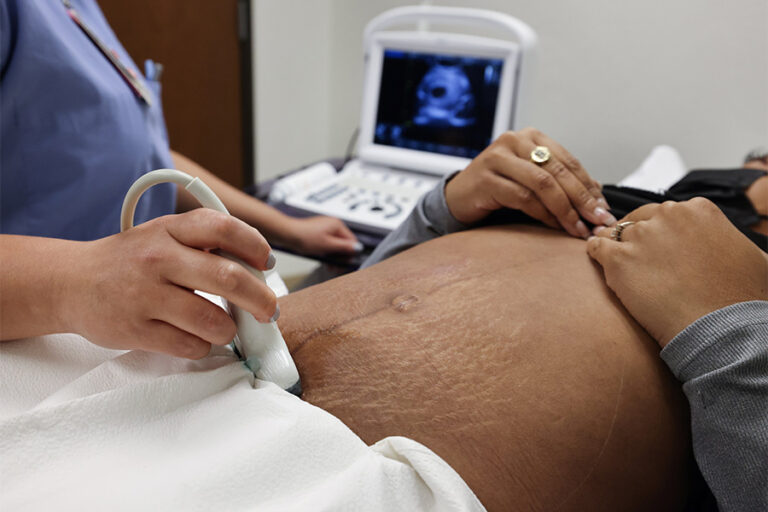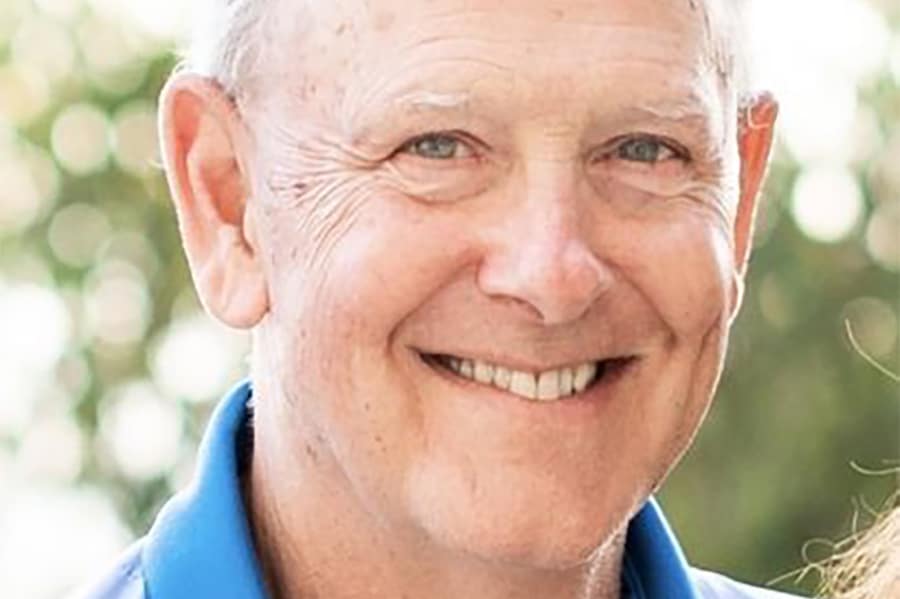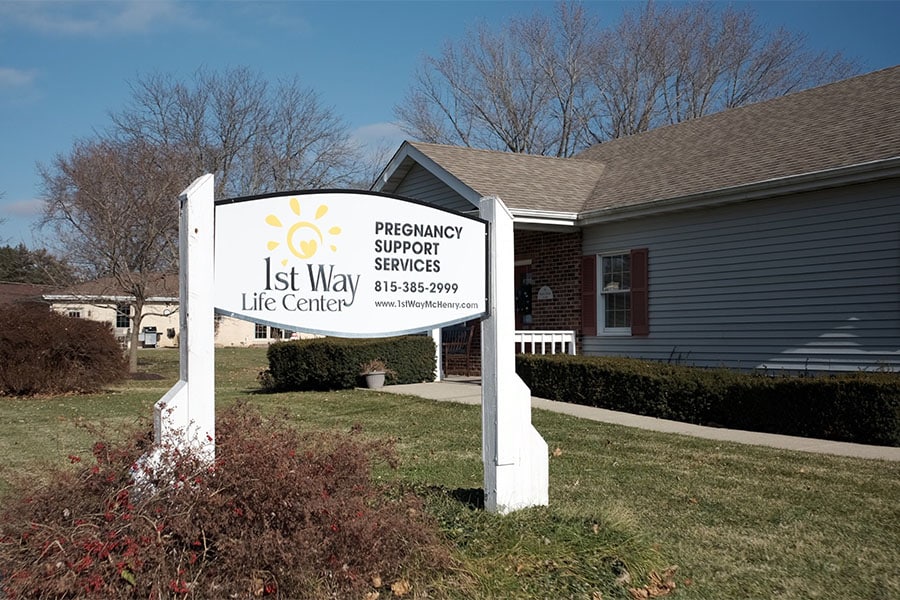Dr. John Bruchalski still remembers one of the most painful things from when he once performed abortions: ending the lives of babies with a prenatal diagnosis. Today, his practice accompanies pregnant women who choose life for their babies — no matter how short that life might be.
“You treat the mom as a mother, as someone who loves her sick child, and then you also treat the sick child as a member of the human family … you don’t end disease by getting rid of people with diseases,” Bruchalski, founder of Divine Mercy Care, a nonprofit to advance pro-life health care, and Tepeyac OB/GYN, a pro-life faith-based obstetrics and gynecology practice, told OSV News. “You walk with them.”
Located in Fairfax, Via., Tepeyac OB/GYN’s Kristen Anderson Perinatal Hospice Program is one of many programs nationwide offering specialized medical, spiritual and emotional support for families that receive a prenatal diagnosis indicating their baby may die before or soon after birth. Perinatal hospice and palliative care supports both mother and child from the time of diagnosis through the baby’s death while prioritizing quality of life and comfort.
Bruchalski and other experts spoke with OSV News about this strategy of care after a pregnant mother unsuccessfully challenged Texas’ abortion ban. The lawsuit involved 31-year-old Kate Cox who said that her 20-week-old baby was diagnosed with the life-limiting genetic condition trisomy 18, also known as Edwards syndrome. The condition has a 90-95 percent mortality rate for babies within the first year after birth and Cox said that continuing the pregnancy could also pose risks to her life and future fertility.
In response to the legal battle, Jennifer Carr Allmon, executive director of the Texas Catholic Conference of Bishops, issued a statement emphasizing an alternative to abortion.
“We know the compassionate response to a mother facing a difficult fetal diagnosis is to offer perinatal palliative care,” she said.
Ultimately, Cox left Texas to get an abortion, after the Texas Supreme Court ruled she did not qualify for an abortion under the abortion ban’s medical exception.
Bruchalski, along with other experts, stressed the importance of caring for the baby as a patient and walking with parents when they receive the often traumatic news of a prenatal diagnosis. No one can know for sure when a baby might die, many of them said, and abortions at later stages of pregnancy pose their own risks to the mother and pain for the baby.
Above all, they want women to know: “Be not afraid. You are not alone.”
As senior ethicist at the National Catholic Bioethics Center, Father Tad Pacholczyk said that, in his experience, most abortions are driven by fear.
A woman might fear challenges to her own health, not having the skills to raise the child, or that the child may face difficulties in life, he said. She may fear everything from being unable to continue her education or caring for her other children to raising this child alone.
“Fear is always a bad source of guidance for making our important decisions in life,” Father Pacholczyk cautioned.
“If we stipulate that our children need to be ‘sufficiently perfect’ and ‘not so badly off,’ we offer a conditional, disfigured form of human love driven first by our own interests, instead of that sacrificial parental love that every pregnancy betokens,” he said.
John F. Brehany, NCBC’s executive vice president and director of institutional relations, called perinatal hospice a moral alternative to abortion because “it helps women to avoid causing grave moral harms to themselves and to others and also because it promotes profound moral goods.”
“To intentionally kill or hasten the death of a preborn child diagnosed with severe congenital abnormalities is never right or even helpful,” he explained. “In addition to the wrongness of killing, abortion always causes trauma, physical, emotional and/or spiritual, to women who undergo it.”
He added, “The field of perinatal hospice was developed in part because good doctors were aware of this trauma and wanted to help women avoid it.”
Many perinatal hospice and palliative programs exist to accompany women and families through a life-limiting prenatal diagnosis, experts said. Perinatalhospice.org, a self-described clearinghouse of information about perinatal hospice and palliative care, offers resources for parents and caregivers, including a list of more than 350 programs.
At Tepeyac OB/GYN’s hospice program, Bruchalski said that they help a mother use her womb as a hospice, in a sense.
“We want to walk with you through … the physical, the psychological, and the spiritual realities of the diagnosis,” he said, “as well as the treatment or the accompaniment where you just love on this child for as long as it’s alive.”
Bruchalski and other medical professionals recommended Be Not Afraid, a nonprofit that provides case management support to parents carrying to term following a prenatal diagnosis. The nonprofit is currently focused on training pro-life and Catholic organizations nationwide, including dioceses and archdioceses, and referring parents to them.
“We could not take care of all the parents who came to us looking for support and we didn’t have similar organizations to whom we could refer them,” Tracy Winsor, co-founder and parent program director, said. “We felt like it was so important to provide more workers in the vineyard, in a sense.”
While it follows the ethical teachings of the Catholic Church, Be Not Afraid serves families regardless of faith. They also are unique in that they serve parents without regard to the nature of the prenatal diagnosis.
“This is important pro-life work because we know that whereas 80 percent of parents will abort if they get a serious prenatal diagnosis, 80 percent will carry the term if they’re offered a service of comprehensive support,” she said, citing studies “Perinatal Hospice: Family-Centered Care of the Fetus with a Lethal Condition,” published in 2006, and “The Perinatal Hospice: Ploughing the Field of Natal Sorrow” published in 2005.
Winsor emphasized that, at Be Not Afraid, they believe that many parents need more than a website listing of services — they need informed accompaniment.
“Parents who abort are very capable of googling and finding websites and resources,” she said. “That isn’t always enough, and we believe what they need most is immediate trauma-informed outreach that embraces the lives of both the parents and their child.”
Dr. Robin Pierucci, a neonatologist involved with Be Not Afraid who serves as an associate scholar with the Charlotte Lozier Institute and as co-chair of the American College of Pediatricians’ pro-life committee, said that when she first meets expectant parents, she says “congratulations.”
“I love reminding them that the first diagnosis is, ‘it’s a baby,’ and no other diagnosis ever negates diagnosis number one,” she said. “The baby is inherently valuable and worthy of our love.”
As someone who cares for babies in potentially life-threatening circumstances, she tries never to predetermine whether a baby should live or die.
“We humbly acknowledge our limits while simultaneously acknowledging the incredible advances in medical technology combined with our skills,” she said. “Even if I can’t completely fix or heal someone, that’s never an excuse for abandoning them.”
Pro-life groups also are working to support perinatal hospice and palliative care. Dr. Christina Francis, an OB-GYN and CEO of the American Association of Pro-Life Obstetricians and Gynecologists, described perinatal palliative care as an essential service.
“Sadly, many families are not even offered this option but (are) rather told their two options are intentionally ending their child’s life or receiving no support,” she said. “This is not providing real choice for families.”
Kristen Day, executive director of Democrats for Life of America, said that her organization is working on draft legislation with the goal of training and increasing the number of perinatal hospice nurses to support and inform the women who receive a prenatal diagnosis.
Day spoke after the pro-life group Americans United for Life published a proposal to “Make Birth Free,” co-written by her and Catherine Glenn Foster, then-president and CEO of AUL.
Danielle Pimentel, policy counsel at AUL, said that families should not be forced to “choose” abortion because it is presented as the cheaper option.
“The cost of compassionate care can be a barrier to families navigating their preborn child’s fetal anomaly or life-limiting condition, especially when maternity care and childbirth in the United States are already very expensive,” she said.
Day added that while insurance would cover perinatal hospice and palliative care, a solution should be found to help the uninsured.
PerinatalHospice.org points out that, as prenatal testing advances, more families are experiencing this heartbreaking situation.
Still, as an experienced neonatologist, Pierucci said she has never met parents who regretted meeting their baby.
“We’re better off when we care for each other with our imperfections, some of which show up on a fetal ultrasound, some of them not so much,” she said. “But we’re made better human beings all the time by choosing to care for our little ones.”
For more information on Be Not Afraid, visit: https://benotafraid.net/
For more information on Tepeyac OB/GYN’s Kristen Anderson Perinatal Hospice Program, visit: https://tepeyacobgyn.com/services/perinatal-hospice-care/
A link to the proposal “Make Birth Free” can be found here: https://aul.org/law-and-policy/make-birth-free/https://aul.org/law-and-policy/make-birth-free/
Read More Respect Life
Copyright © 2024 OSV News









